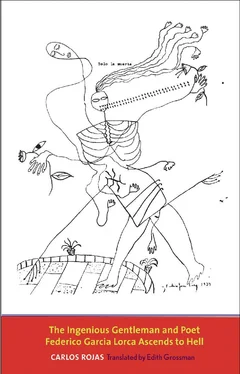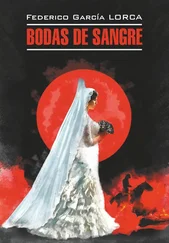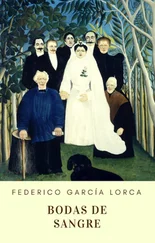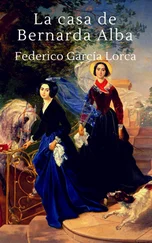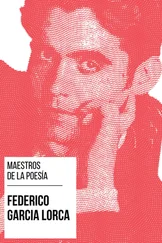“Go on, man,” I murmured, “tell me what you’re going to eat and how the bulls will be this summer.”
In your theater, the one you were assigned to in hell, your last day in Madrid appears and is staged when you recall it. Everything comes back to life exactly as it was, as it happened to you on that Thursday, July 16, 1936, the eve of the outbreak of the war in Africa. The previous night you had a dream that was another man’s painting. At the bottom of the composition, which seemed to be conceived in glass and the glass secured on a wooden panel, slept Raphael’s Paris unnoticed by the three Graces. Beside him you saw an open shell, which you had once contemplated in Port Lligat beside some magical sea of the kind painted by Dalí, in the days when you dedicated an ode to him. It was half white and half ocher and scarlet in its hollow, surrounded by an edge gilded by the sun. (“It’s called Crepidula onyx , which is its exact, technical name in Latin,” Dalí had told you during one of the last summers of your friendship, for he liked to collect useless information. “In the tropical Pacific, it’s known as the onyx slipper snail.”) On the other side of the onyx slipper snail, flanking it with Paris, was a white Bally shoe. A white, low-cut shoe you recognized immediately because it was yours. Your friend Carlillo Morla, the Chilean diplomat, made you buy it because he was sick of seeing you wear those clumsy buckled shoes he called the house slippers of Queen Juana the Mad. Above the onyx slipper snail, in the middle of the glass that was a painting, hung an enormous, mother-of-pearl shell. Hanging or perhaps held over the void that was a vortex of red and gold cobras was an amputated naked woman’s torso holding an apple. It was undoubtedly part of the body of one of Raphael’s Graces, though Raphael had not painted that monstrosity. Neither had Dalí, even though a mountain or cliff, with smooth slopes and metallic peaks, appeared to the right of the carcass to remind me of Port Lligat. Above that rocky terrain appeared a gigantic ape, squatting as if overcome by a burden that was invisible or omitted in the dream. Though almost as tall as the headlands themselves, one would say he was carved out of tiger’s eye because of his yellow transparency. His eyes, on the other hand, were round and turquoise blue. Just in the center of the titanic, mother-of-pearl shell, you saw another that was perhaps a cut panel or the drying incision in a very old tree. You might also have thought it was the fossilized gaze of a man who preceded this species of ours, which has not always been human and perhaps is condemned to cease being human. It was indigo on its exterior that was similar to bark, and the color of dry resin underneath. In the middle of the transverse cut, it became dark and blue again as if revealing the hidden pupil of the metalized eye. A stub of the dream remained, which now erupts at the highest part of the stage, above the sleeping image of Paris. It was another spiral, that of a shell as gigantic as the ape on the cliffs, a great red curve in the rear followed by another that was gray like parchments with a good number of palimpsests. Joined to those curves were those of another of Raphael’s Graces, her arms opened to press them against her naked body, seen from the back. Of the third divinity, all you could see, as you see it here, was her torso severed at the height of her breasts. That living bust leaned over the forearm of her companion, or perhaps erupted from the divided exterior of the singular shell, or from a fold opened with a knife between its red and gray ramps.
When you awoke after so many strange dreams, you thought everything that would happen to you that day had already occurred, including the memory of your nightmare. More than thinking it you felt it, in a kind of presentiment. When the two of you went into details, yours was not the sensation you imagined in Ignacio and he then confirmed, that he had been someone else as he approached your table on that winter Sunday in the restaurant on the Gran Vía. No, yours was the certainty that each of your acts and words on that Thursday, July 16, 1936, had been carried out and spoken on another identical day long ago. And still you hesitate and ask yourself whether you really lived those hours twice or foresaw, in the most irrational part of your spirit, that their representation preceded you in hell. It is very possible that our memories anticipate us on the stages of this spiral and that what is remembered appears here before we experience it on earth. In short, you are unable to decide whether the man in the third theater along the ramp of the corridor is alive or has died. Seeing the basilica on his stage, you suspected at times that perhaps memories precede us into eternity just before death. Perhaps it is appropriate to amplify that suspicion and wonder whether each of us might not have our private seating ready in this universe long before we are conceived in the other one.
In any event and as now appears punctually on stage, the doorbell rang in your apartment on Calle de Alcalá while you were still in your robe and slippers, preparing your first café con leche. You weren’t surprised and didn’t try to guess who it could be, because in an oblique way you were afraid to find out. It was an old actor, out of work and overwhelmed by every plausible and unimaginable misfortune, who the night before had almost anticipated his request for a loan. You invited him to a breakfast of coffee, biscuits, and toast and jelly, which you both ate standing up in your office beside the balcony. As you requested in one of your poems, at your death those windows should be left wide open to let in the wind so you can be buried afterward in a weathervane. On the sidewalks peddlers hawked sea crabs and river crabs, butter from Astorga and cheese from Miraflores. The sun poured in, spilling along the light marquetry and the blanket from Momostenango that covered the sofa.
“You couldn’t add up my troubles. Not even I could count them all without forgetting some of the most important ones.”
“ … ”
He hesitated for an instant, not knowing where to put the empty cup. You were going to take it so he could return to his complaints, but he anticipated you and placed it on the stone floor of the balcony, at the threshold and next to the blinds and white shutters. He licked the marmalade from his fingers and continued his plaint of praise and academic questions.
“You’re still young, but very deservedly famous. You have a natural talent that no one can deny without offending you. That’s why I dare to ask your opinion, thinking about my life today, yesterday, and the day before yesterday. Tell me, why are we born?”
“ … ”
“I’ll tell you why. It must be to die, though the justice of that escapes me. In any case, it couldn’t be only to suffer, which turned out to be my fate. Summing up a life as unfortunate as mine, I have to conclude that my passage through the world is a mistake, because the Great Architect can’t construct a life so badly no matter how insignificant it may be. What do you think?”
“ … ”
“I’d say I’m here by mistake and should have been born in another time. In another period in the life of my family, which on both sides is constantly enriched with famous actors and actresses. Did you know a great-grandmother of mine was the sister of the great Máiquez?”
“ … ”
“Yes, sir. Isidro Máiquez himself, who was booing one afternoon at the bullfight and met his match in the matador Costillares, who yelled at him: ‘Señor Máiquez, Señor Máiquez! This isn’t the theater! Here you die for real!’ I’ll bet you already knew the story.”
“ … ”
“In our family we’ve passed it from generation to generation since the time of my great-grandmother. Of course she premiered Don Leandro Fernández de Moratín’s New Comedy in the role of the young Mariquita. She also played Medioculo in The Oil Lamp’s Fandango , though this does not do us as much honor since it was a simple farce. I should have been born at that time and married my great-grandmother, in the days of The Comedy and The Fandango , of Máiquez and Costillares, of Goya and Moratín. I’d bet my life wouldn’t have been so unfortunate then, the bad Greek tragedy it is now. You, so brilliant a young man, perhaps can answer two questions that seem to me to be Siamese twins. Why do we come into the world and why do we do it at one, irrevocable time?”
Читать дальше
